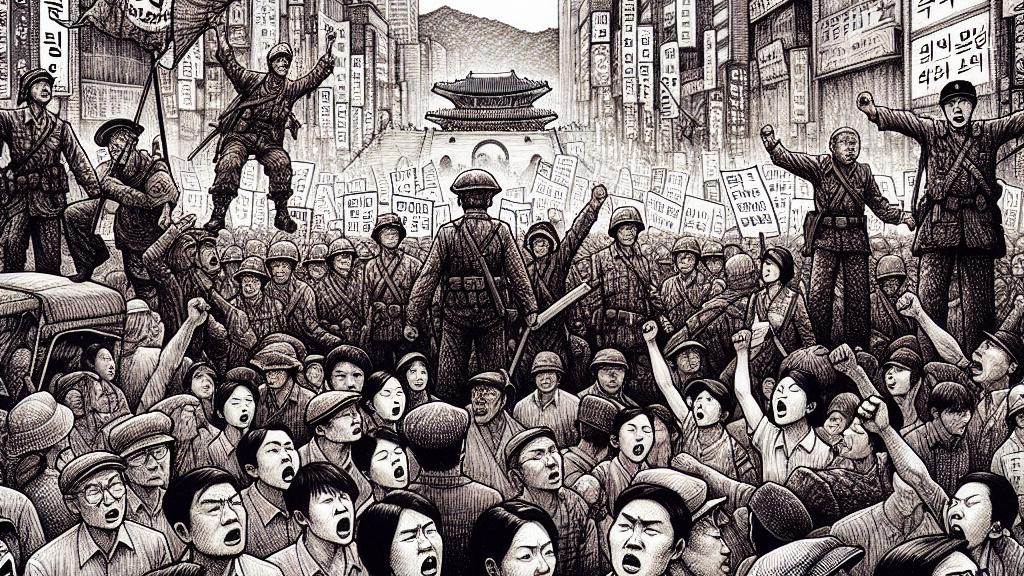Understanding the South Korean Political Crisis and Protests
Overview
- President Yoon Suk Yeol's declaration of martial law ignites a national crisis, prompting alarm and widespread protests.
- Citizens from all walks of life rally, demanding accountability and justice, asserting their unwavering commitment to democracy.
- Women emerge as powerful leaders in the protests, challenging historical gender roles and advocating for significant change.

Martial Law: A Shocking Declaration
In an unprecedented move, President Yoon Suk Yeol declared martial law, aiming to regain control as political tensions flared. This decision, however, sparked immediate outrage among the populace, most of whom were bewildered and alarmed. The very idea of martial law felt like a chilling step backward for a country that had fought so diligently to uphold its democratic values. Within hours, streets across South Korea erupted in fervent protests; citizens gathered, chanting slogans such as 'No to Martial Law!' and 'Fight for Democracy!' These expressions of dissent were not only a response to Yoon's actions but also a reaffirmation of their rights as citizens to challenge authoritarianism.
The Surge of Public Protests
As the days unfolded, the situation escalated dramatically. Yoon's arrest ignited a spark that set off unprecedented protests. Thousands stormed the court, demanding justice, some smashing windows, while others peacefully occupied the surroundings in defiance. This reaction echoed global movements, reminiscent of the protests during the Arab Spring, where citizens joined forces to call for change. Social media played a crucial role, amplifying the voices of those against the government and quickly spreading images and stories of heroic protests that encapsulated the fight for justice and democracy. As a diverse collection of voices rose up – students, workers, and families – it became evident that the anger was palpable and genuine.
Women Leading a Transformative Movement
Amidst this political upheaval, a powerful and noteworthy transformation emerged: women positioned themselves at the forefront of the protests. Traditionally, South Korean women had seen limited representation in political discourse, but with the recent turmoil, they stepped into leadership roles with determination and resolve. Reports indicated that women made up nearly 40% of the demonstrators, actively voicing their demands for equality and change. They waved vibrant signs adorned with powerful messages and unified through the shared spirit of resisting oppression. This shift is not merely about who takes to the streets; it symbolizes a broader cultural awakening, with women now demanding a seat at the table in discussions that shape their lives. As these women stand shoulder to shoulder with their male counterparts, they showcase a new paradigm of activism, reshaping the narrative of political engagement in South Korea and pushing for an inclusive future.

Loading...